Reading & Spelling Contractions Activities & Games Online Version
$3.50Working with students online? Have a student who needs to type instead of write? Contraction Reading & Spelling Activities & Games ready to download and use!
Showing 19–36 of 43 resultsSorted by latest
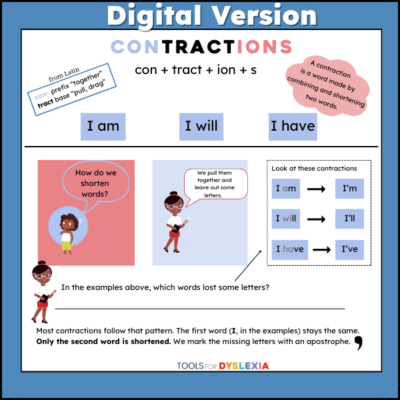
Working with students online? Have a student who needs to type instead of write? Contraction Reading & Spelling Activities & Games ready to download and use!
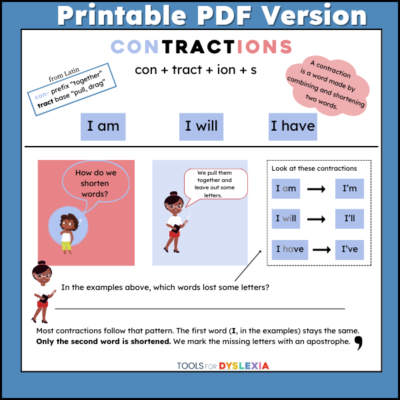
So many students have trouble with reading and spelling contractions. Do your students sometimes see don’t and read it aloud as do not? My students do too. How about spelling some of the two-syllable contractions adding extra vowels because they feel them?
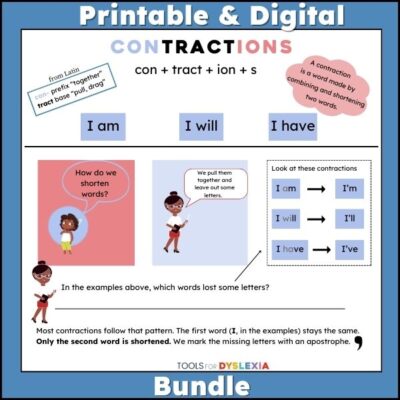
Bundle of both Digital & PDF Versions of the Contractions Reading & Spelling Activities

Does your student have trouble spelling none or nothing? Many of my students do too.
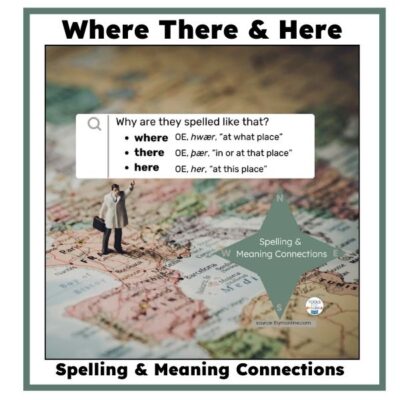
Where, There, and Here are often misspelled. Why? Because we have various options to spell them. How do we practice spelling these without it being boring? A brief look at their histories, two spelling games, a correct-the-spelling activity, and a writing activity with our phrases.
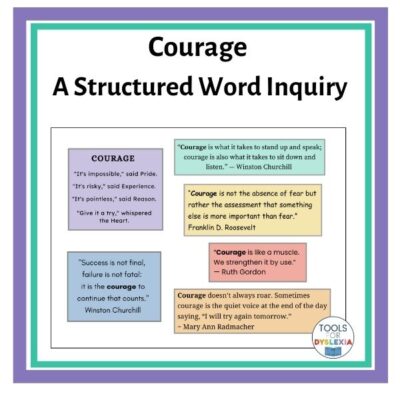
“…it is the courage to continue that counts.” Winston Churchill
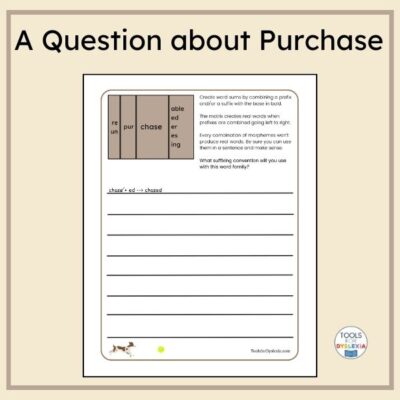
When a student asked about the spelling of purchase, specifically why the <a> isn’t an <i>, we had to dig a little deeper. It turns out we were chasing an unstressed syllable. Read more about it at How to Find an Unstressed Syllable. This matrix gives your students an opportunity to work with this word…
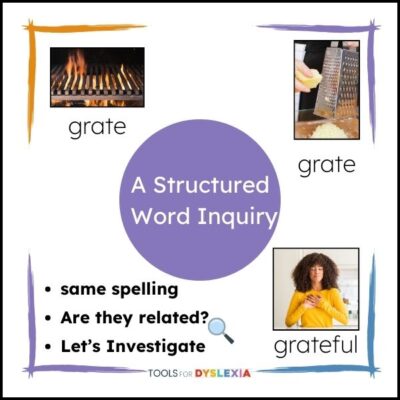
Usually words with the same spelling and meaning are related. Does a grate on a grill, grate as in grating cheese, and the grate in grateful have anything in common besides their spelling? Are they related?
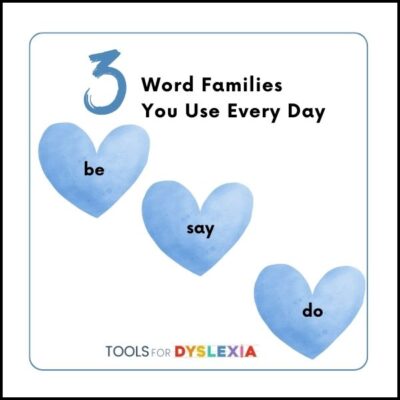
Do your students have trouble reading or spelling any of these words?
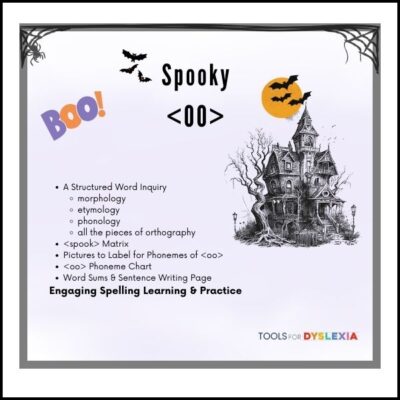
A spooky Structured Word Inquiry and practice with the OO vowel digraph.
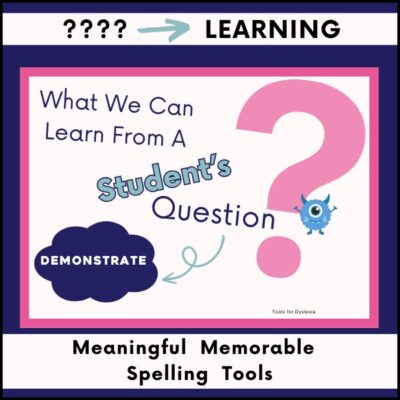
Student questions lead to LEARNING. Here’s a snapshot of the learning from a student’s question about the spelling of demonstrate that led us to a monster.
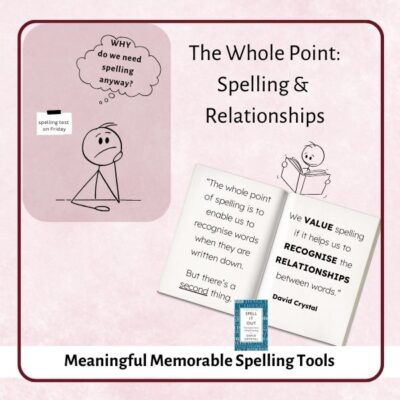
What’s the point of spelling? Well it’s not memorize, memorize, memorize. It’s about recognizing words and their relationships and word families. At least that’s what makes it easier for my students!
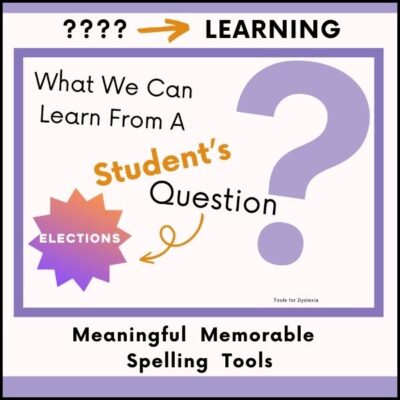
Student questions lead to LEARNING. Here’s a snapshot of the learning from a student’s question about the <t> in elections.
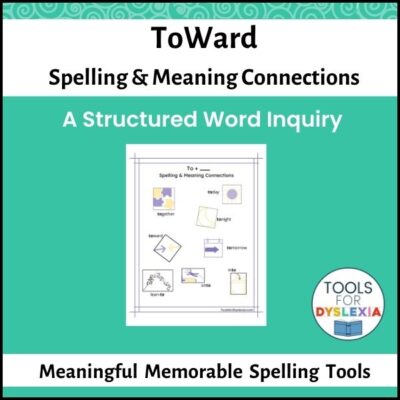
Lots of students misspell “toward” when they’re spelling without seeing the structure of this direction word.
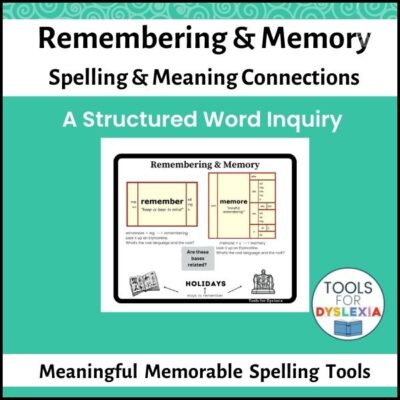
A word study to make note of the relationship between REMEMBER and MEMORY.
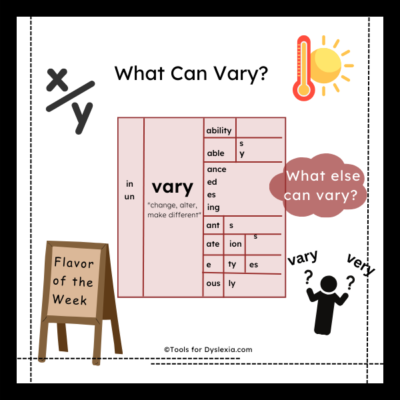
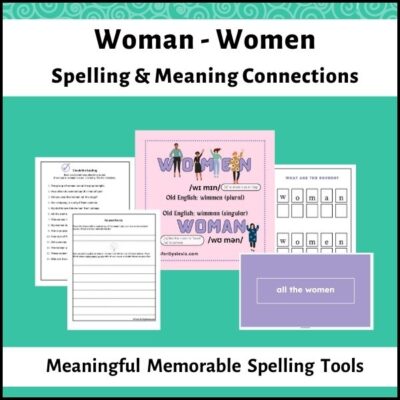
A student’s frequent trouble reading “woman” for “women” and misspelling both words led to this resource. His question about the spelling and how close his idea was to the Old English spelling were surprising to both of us.
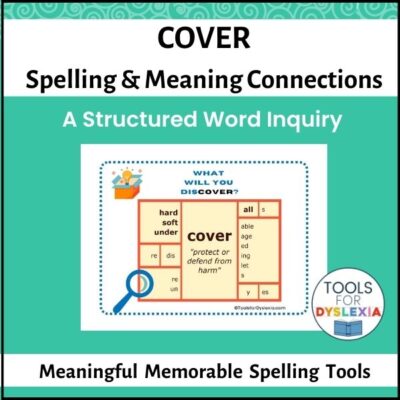
With this matrix resource, you’ll unCOVER spelling structure and phonology. When students (and adults) study words like this, you peel back the layers to see the spelling and meaning connections, essentially uncovering spelling treasure.
End of content
End of content